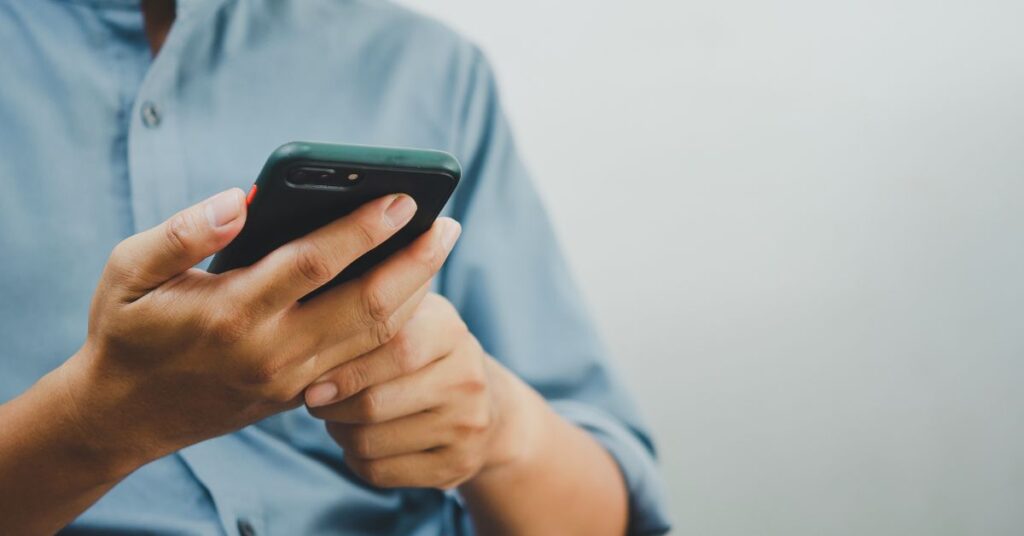I recently had some time off work. One of the best things about it was not being chained to my phone for a week. I finished work, went on leave, and turned all my notifications off.
I used my phone only to pay for things and take photos. It was glorious. By the end of the week, I didn’t even know where my phone was in the house. I was completely detoxed!
Constantly Connected but Still Lonely
We live in a constantly connected world. Sometimes, our phones, particularly social media, can be tempting as a means to escape from life. I am sure many of us can relate to that feeling of scrolling reels, just for a few minutes, and before you know it, you are lost in the scroll hole. Mindless scrolling indicates that I need some time away from my phone. Other signs are picking up the phone while I am watching TV, and continually reaching for my phone as soon as my hands are empty. Some of the other indicators are hearing my phone buzz and feeling anxious or driven to get to it, or finding that social media generally is taking me down a negative path.
So much of our daily lives are stored in our phones now; we have to get a code for two-step verification, follow up on an email, check a notification, and even do our banking. The problem is that between our socials and all the other functions on our phones, we can be almost constantly tethered to our devices. So then, how do we detox?
Set Goals
Think about the issues that bother you with your phone, and start by setting some goals. Do you want to stop multitasking? Perhaps you want to go 48 hours without devices. Is it cutting down your social media time that appeals to you? Do you want to go a whole day without the phone/TV? Whatever it is, use the SMART framework for goal setting and write it down. Make some small, realistic, achievable goals and work towards them.
Turn Off Notifications
One day a week, I set the do-not-disturb function on my phone. I have it set up so that family can come through, but other than that, I don’t get any notifications. It is incredibly freeing not to be constantly distracted. It helps with concentration, stops me from multitasking, and enables me to focus on my day. Dr Mark Williams, a professor of cognitive neuroscience, has found that phone notifications increase our stress levels. When we hear the sound or feel the phone vibrate, our brain interprets it as something demanding immediate attention. Notifications also trigger a release of dopamine, a neurotransmitter that can create a sense of anticipation and addiction, which can lead to compulsive phone checking. This is problematic in many ways, but if your constant phone checking is getting in the way of work, study, or everyday family life, try a day without notifications.
Declutter Your Social Media
You are in control of your social media. We end up following accounts for different reasons. Sometimes, those accounts aren’t life-giving. If you are finding that social media leaves you with a sense of anxiety and disquiet, look at who you follow. Do you need to do some unfollowing? I try to curate my social media accounts to be a place of rest. I follow accounts that post meaningful and beneficial content. If I come across accounts I have followed that don’t fit that criteria, I unfollow them. I post things that edify and encourage. I try to create a restful space on my account for others to follow.
You might also find that you follow accounts that lead you to make unfavourable comparisons between your life and what you wish you had. The account content may be good, but it may not be healthy for you. Making healthy choices about your social media spaces is a good start to reducing time spent on social media.
Leave your Phone in Another Room
Working? Studying? Socialising? Try leaving your phone in another room or, at the very least, turning it upside down. When I need to study, I use it to access the Uni site, and then it sits upside down, away from me. Even though we tell ourselves that we can multitask without effect, research has shown that it can reduce our comprehension and attention. If you are socialising, try leaving your phone in your bag or another room. In a world full of digital distraction, the person right in front of you is the real connection. And let’s be honest—no matter how hard we try to multitask, people can tell when our attention isn’t fully with them.
Our phones and digital devices can be helpful for a range of things, from connecting with other people to organising our lives. They can also become an issue that leads to a variety of problems, including lack of concentration, problems with completing things, anxiety, and an inability to properly connect with the people that we are with. If you find that your phone is an issue, try a few of the tips suggested in this article and let us know you go!
Article supplied with thanks to Life FM in Adelaide.
Feature image: Canva
About the author: Lorrene McClymont is a writer and photographer who lives in the beautiful Barossa Valley in South Australia. You can connect with her on Instagram.




